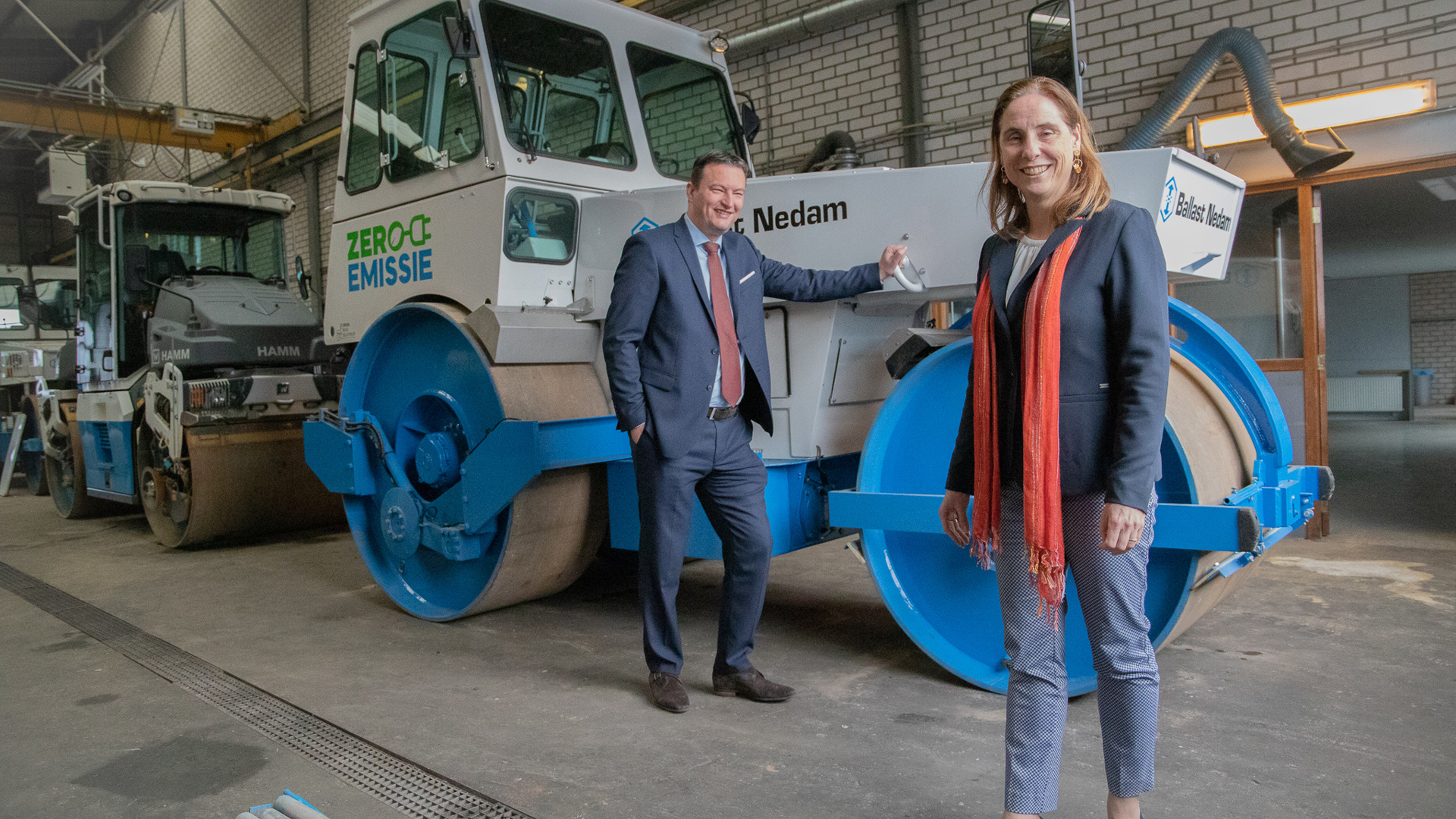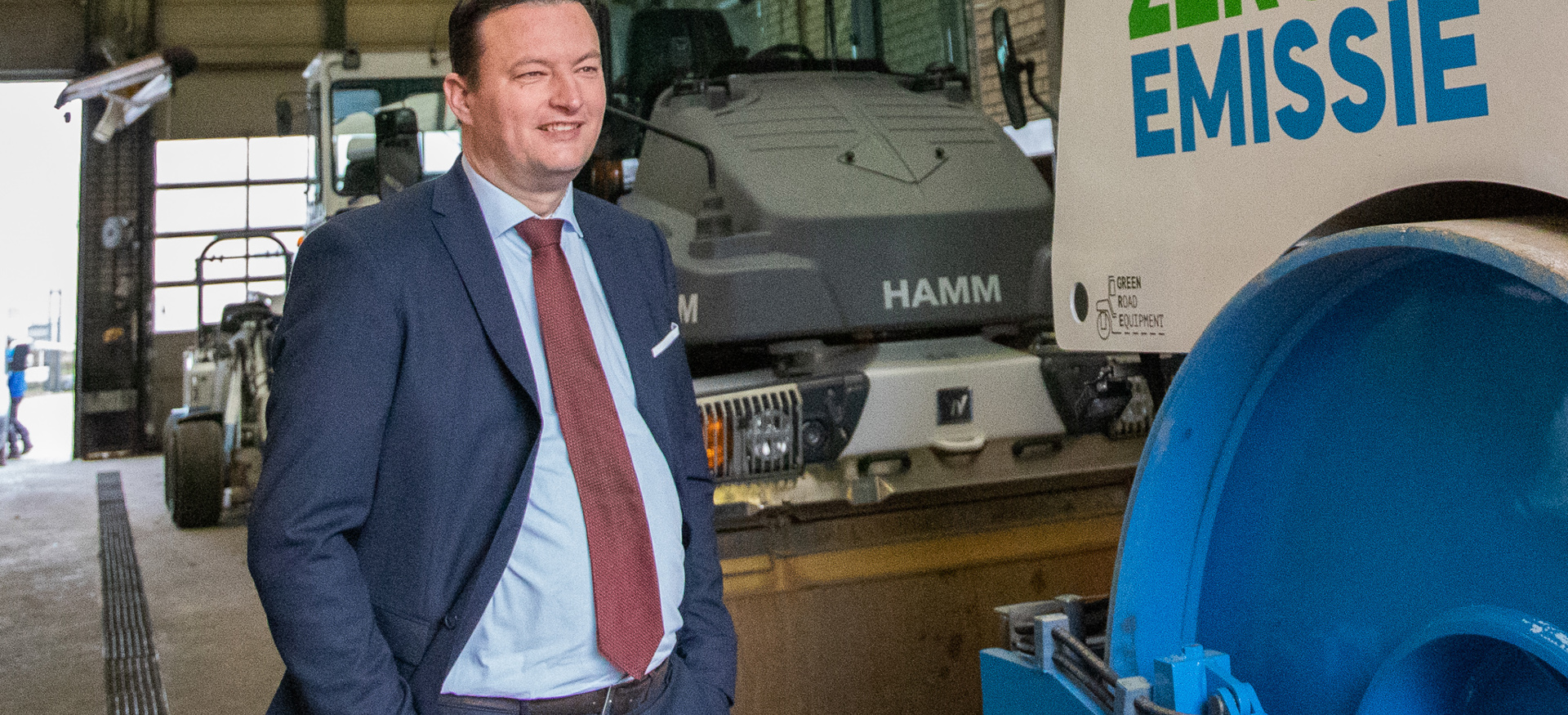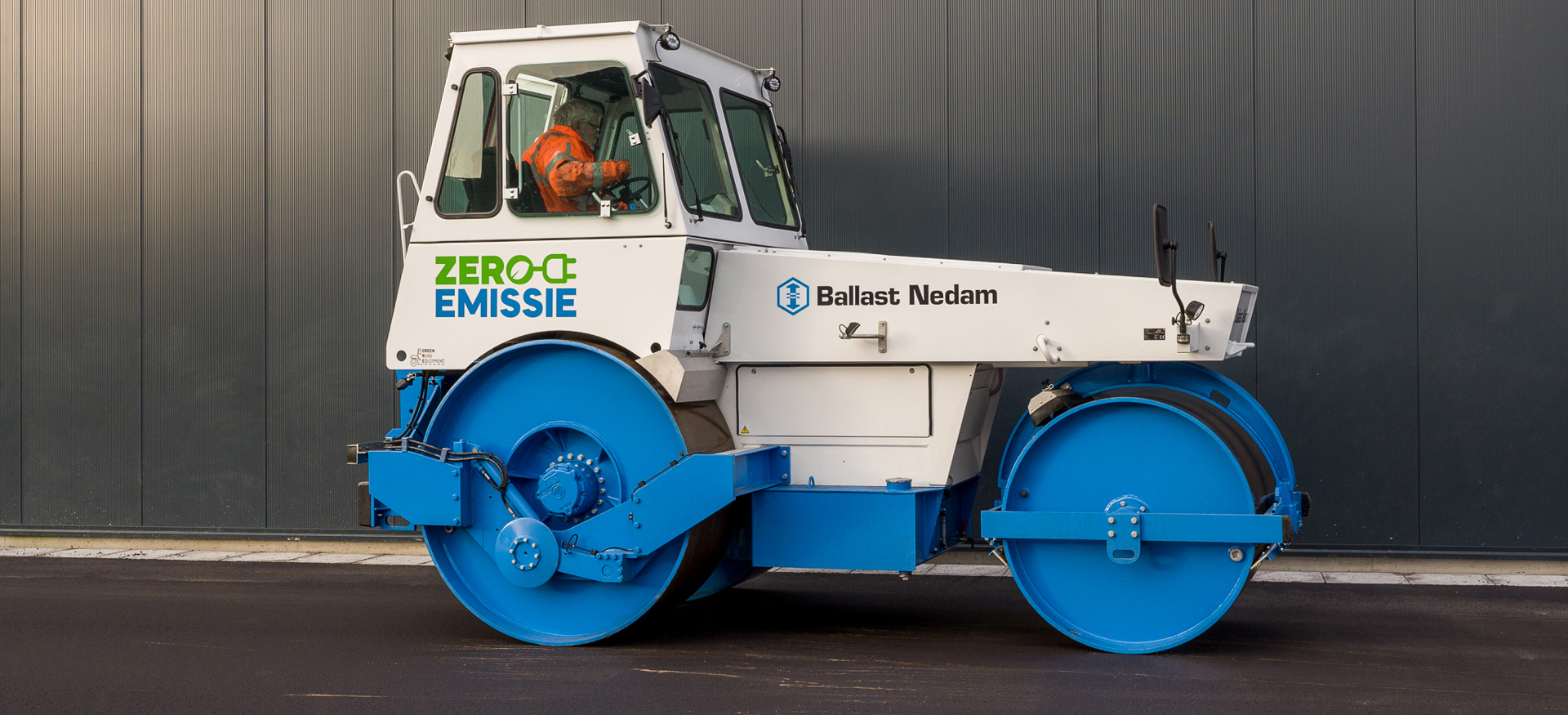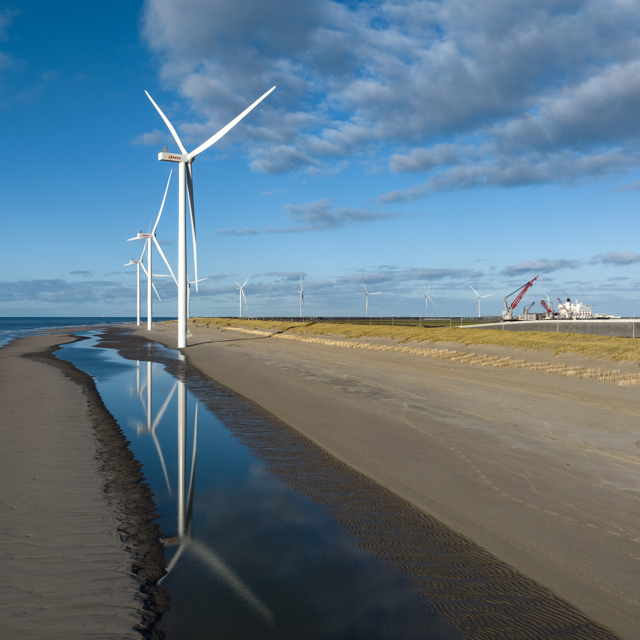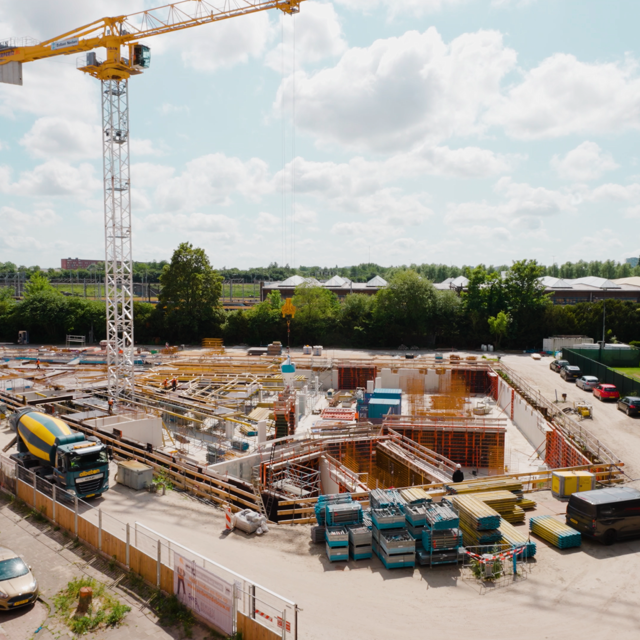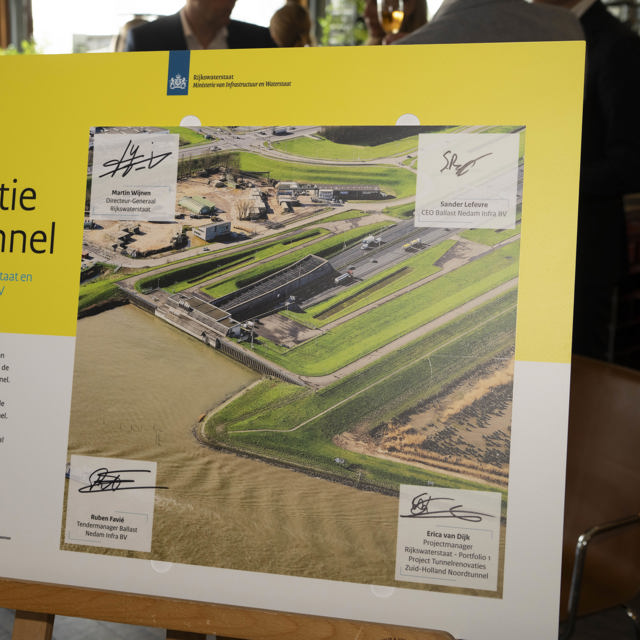'Electric equipment is on the agenda in big letters'
It is partly thanks to these two fanatics that the text 'Zero Emission' is displayed on Ballast Nedam's latest equipment. For CSR director Bramske van Beijma, this transition cannot go fast enough, she tells Joep Hartjes, director of Ballast Nedam Road Specialties: 'Joep, I am constantly playing chess on several fields.'
Joep: With our new equipment, we are working in a much more sustainable way. Good for our clients and good for our own people, who work with the most modern equipment. We even converted the HW90 Hamm roller into an electric vehicle. Because of its size, this roller lent itself perfectly to this. Yet the start of such a transition is always difficult, you notice. If someone forgets to plug it in, the battery is empty.
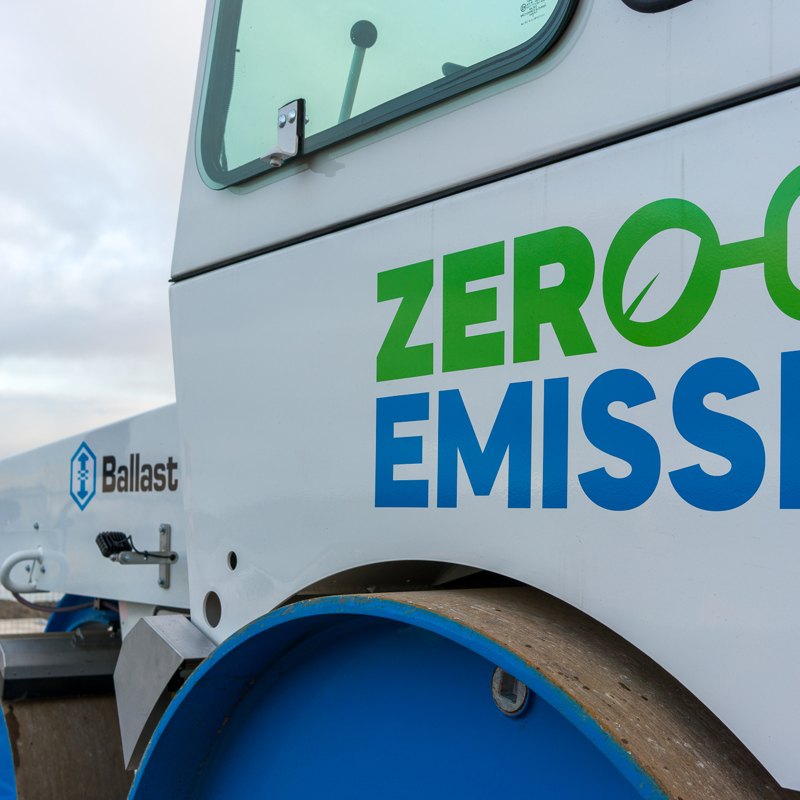
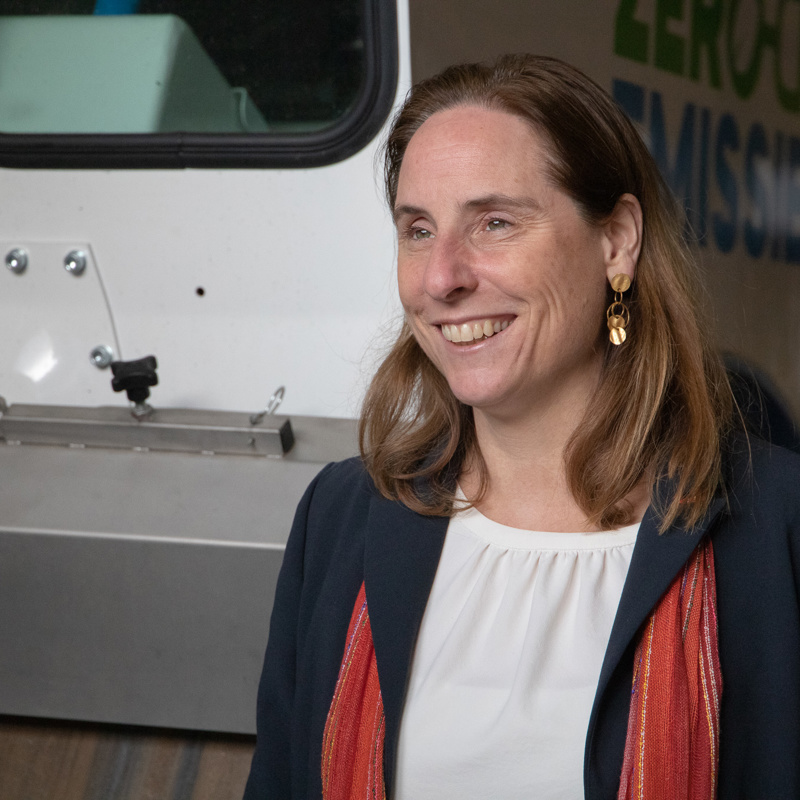
Joep: Me too, I have several things I'm working on now. For example, we have literally brought the DIBEC research laboratory into our office in Leerdam. This adds value, after all they are smart men and women. I would love to make Leerdam a testing ground, where we can show what we can do in the field of infrastructure. And sustainability and circularity are naturally part of this.
In the past two years, we have renewed all our asphalt equipment, with a great deal of attention for sustainability. We are looking for a certain flexibility in the investments we make. That is why we are in talks with potential partners and why, for example, we are thinking of interchangeable modules on our trucks. If we buy an electric truck in two years' time, we can easily change the bodywork. I put a lot of time and energy into these discussions. It provides insight and an opportunity to think about our next step.
In the last two years, we have renewed all our asphalt equipment, with a great deal of attention for sustainability.
Joep: No, not really. Construction and infrastructure are fairly traditional and the process of asphalting has not really changed in recent decades. There is a lot of challenge in improving these processes. And that is where my opportunity lies. I need that challenge as well, otherwise I get restless.
We are taking steps forward and have built up confidence. Moreover, it is no hot air. What we say, we actually do. If we have an electric roller, we show it. Maybe even too little. But we don't go around saying that we will do everything electrically if we can't do it yet. Our clients appreciate that too. We are modest about it, but the things we show, we actually have. What is your view on that?
Joep: Well, that's exactly how I would like to see Ballast Nedam Road Specialties. When I'm in a supermarket choosing a jar of jam, I don't look at the price, I think: 'That's good. I'll take it with me.' That's how I see our business to some extent. I don't have to serve all the clients, and I certainly don't want to be the cheapest by definition. What I want are clients who want to work with us pleasantly, pay a fair price and want to build up a long relationship with us. Besides, you want to get what you paid for. Or even more. That works like a red rag to a bull for me. If someone says to me: 'You can't pull off that little plan. Then I have the best plan. Guaranteed.
Bramske: A challenge.
Bramske: Yes, and making a job so that you also have something for the future. You actually contribute something to society. You want to do that in the most responsible way possible. With your electrical equipment, for example.
And yet: we may be zero-emission after a while, but then there are other buttons you can turn in terms of sustainability. It's not just the nitrogen, the particulates, the CO2. It is also about the scarcity of raw materials and the rise of biodiversity. There are so many steps to take, so we have to be constantly alert. Where do we put the focus? We have to be wise in the choices we make, but that is no reason to do nothing. We can't say: 'We've replaced our entire equipment fleet, now we're done'. No, that is not the point.
Joep: What I've also learned is that at some point you have to dare to make choices. Some choices may not be as smart or as strategic as you had thought. For example, we also have small electrical equipment of which we now say: 'That was not quite what we wanted'. Well, now we know better and we have learned new lessons. Not choosing is a mortal sin, that's for sure.

